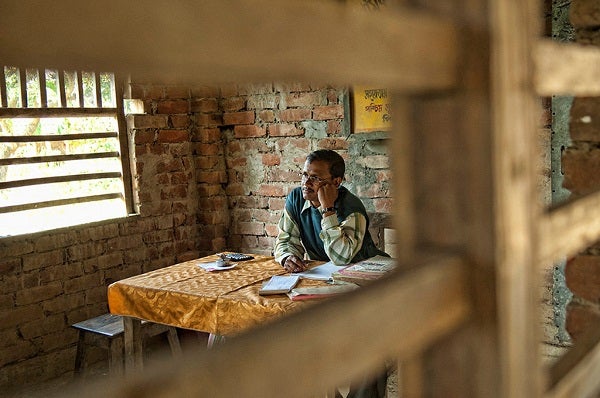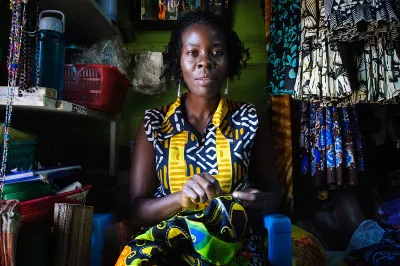Complaints Handling: A Secret Ingredient to Financial Inclusion
When new and inexperienced financial consumers start to use formal finance for the first time, we often focus on the up-front factors that can deliver direct benefits and lead to long-lasting financial inclusion. These considerations often include making it easy to access financial services, building user-friendly product interfaces, and creating products that fit with the personal and business needs of customers. Yet we may not be paying enough attention to another factor that can have significant impact on long-lasting uptake and usage of financial products: How easy is it for consumers to fix problems when things go wrong with their financial services?
Consider for example recent CGAP conversations with consumers in Ghana. In the past year many microfinance companies in Ghana have absconded with customers’ deposits, including several consumers we personally spoke with. All of these consumers had lost significant savings and had trouble identifying anyone that could handle their cases. Not only had they given up on getting their money back, but they had also gone back to saving in their stall in the market, lock-box at home, or even in a hidden pocket in their apron. For these consumers, we should wonder how likely they will be to use formal channels to save their money in the future after their problems went unresolved. We have previously discussed the phenomenon of “de-banking” of low-income consumers—when customers stop using formal finance after having a negative experience. Just one bad experience can keep individuals out of the formal financial sector for years after. If we flip the script, we find that when problems are resolved (or even just explained) for the consumer through efficient, consumer-friendly complaints channels, the long-term positive impacts on financial usage can be equally powerful.
 A banker waiting for customers
A banker waiting for customers
Photo Credit: Nayan Sthankiya
Policy makers in markets as diverse as Nicaragua, Armenia, and Senegal have realized the power that effective complaints handling can have for financial inclusion. In recent years they have established a range of innovative new approaches to better serve consumers and build a strong “complaints culture” across the financial sector. A new CGAP publication, Making Recourse Work for Base-of-the-Pyramid Consumers, describes the ways in which innovative recourse arrangements play an important role in financial inclusion, and highlights several ways in which providers and policy makers are making recourse more effective for this segment of financial consumers, including:
- Meeting consumers where they live via town halls and “road shows.”
- Aggressive awareness campaigns through media channels like radio, but also by requiring complaints information to be included on product information and advertisements.
- Increasing the types of ways consumers can present complaints to better serve people who are illiterate, remotely located, or uncomfortable presenting a complaint face-to-face with their provider.
- Developing standardized steps and timing for internal complaints handling at providers, and linking it directly with the government’s complaints handling activities.
Providers are also joining this effort to improve customer service and complaints handling. Two of the most promising approaches for base-of-the-pyramid consumers come from the branchless banking space:
- Mobile providers have developed special hotlines for e-money issues that are separate from general consumer inquiries, and have 24-hour or less complaint resolution systems for issues where consumers’ money is at stake—such as an incorrect transfer of funds.
- Some base-of-the-pyramid consumers might feel more comfortable taking their complaints to banking agents who they consider to be more trustworthy, less intimidating, and more conveniently located than a bank branch.
For consumers, there is emerging research evidence that segmenting consumers across not only products or channels, but also personality types and experiences, can help to improve design of recourse channels. This includes mapping out what personal traits or design elements in the complaints process make someone more or less likely to present a formal complaint when they have an issue with a financial product or service. An ongoing “behavioral mapping” initiative by CGAP in an African market has helped to identify significant differences in whom consumers trust, how they present complaints, and how far they will go in seeing the complaint to resolution that hinge on personal traits, employment type, provider type, trust in government institutions, and severity of the issue they face. We hope that in the next year CGAP and others will continue to explore the role of personality in whether consumers are more or less prone to complain when something goes wrong, to inspire policy makers and providers to deliver improved complaints handling to base of the pyramid consumers.
Rafe Mazer is CGAP's Regional Representative in Latin America. He also focuses on consumer protection.



Comments
The blog highlights a
The blog highlights a critical area in financial inclusion ie complaint resolution. It is rightly mentioned that new bank customers need a better and efficient complaint resolution. In India, Dr K C Chakrabarty Dy Governor RBI the central bank, has very little patience if the complaints of poor are not attended to promptly by bankers, and has repeatedly come down with heavy hands on defaulting bankers. His public show of displeasure in such matters has raised the bar in handling complaints by the banks. He has been expecting that all such complaints are resolved within 24 hours maximum. A small habit I acquired as a Chairman of a regional rural bank was to open all private envelops on my table and directly talk to complainant wherever possible and my concerned branch managers of 300 branches. In my views, the commitment of the top person sets the tone for complaint sensitivities of the organisation. Poor and other neglected segments coming to financial inclusion fold shall need a far better treatment.( Ex General Manger Punjab National Bank New Delhi)
Mr. Issar, thank you for
Mr. Issar, thank you for sharing your first-hand experiences on handling consumer complaints, and its importance for you as a former bank manager. Your story of your days in a rural bank reminds me of a rural bank manager I spoke with recently in Africa who had given out his personal mobile number to his members, to call whenever they had an issue (they also have a help desk within their branches.) The personal investment of management in a quality complaints handling mechanism seems to be a commonality in the good practices we saw from both providers and regulators, with strong trickle down impact for the staff.
Add new comment